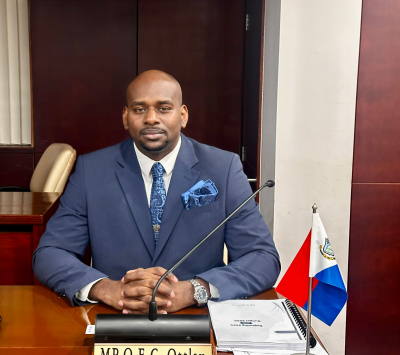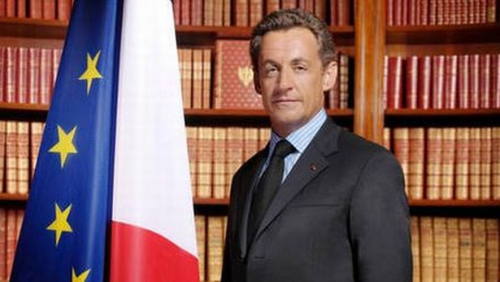PHILIPSBURG:--- The recent nomination of Attorney Jairo Bloem as Chairman of the Supervisory Board for the Central Bank of Curaçao and Sint Maarten is not a step towards stability, but a flagrant political power play that tramples over established procedures and undermines the very institution it claims to strengthen. This unilateral move by Sint Maarten’s Minister of Finance represents a dangerous disregard for due process, legal certainty, and the credibility of a shared monetary union.
According to Article 25 of the Bank Charter, the appointment process for the Supervisory Board's chairperson is crystal clear. It is a joint responsibility of both countries, based on a joint nomination from both Ministers of Finance. Crucially, this nomination must be based on a recommendation adopted by a five-sixths majority of the Supervisory Board itself. This is not a suggestion; it is a statutory safeguard designed to ensure that the leader of this critical institution is chosen through consensus, expertise, and careful consideration, not political whim.
The Supervisory Board has diligently followed this process. Twice, they have put forward a candidate who secured the required five-sixths majority, only to see these candidates become unavailable during the lengthy appointment phase. Rather than supporting the Board as it restarted this meticulous and time-consuming process, the Minister of Finance chose to go rogue.
That, ignoring the Board's efforts and the explicit legal framework, the Minister has put forward Mr. Bloem as a personal nominee. This action undermines the established procedures. The legal opinion justifying this move conveniently claims that the Minister can intervene due to "political inaction" and the Board's supposed failure to act. This is a distorted reality. The Board was actively engaged in the proper procedure, a procedure which the Minister has now decided to short-circuit for political expediency.
The argument that the Board’s recommendations are not binding is a weak and self-serving interpretation. While the Minister may have some leeway, the spirit and letter of the law clearly intend for the Board's recommendation to be the foundation of any nomination. To bypass it entirely is an abuse of power. The Board even extended an olive branch, inviting the Minister to discuss the matter directly, an opportunity that was pointedly ignored. This isn't an intervention; it's a hostile takeover of a process designed to be independent.
The implications of this maneuver are deeply troubling. It injects politics into an institution that must remain above the political fray. The Central Bank's credibility hinges on its independence and adherence to sound governance. When its leadership is hand-picked by a too sound governance, when its leadership is hand-picked by a politician in defiance of statutory procedure, that credibility is shattered. How can the public and international partners have confidence in a Central Bank whose supervisory chair is a political appointee rather than a consensus candidate vetted by the existing experts on the board?
This nomination sets a perilous precedent. It signals that foundational statutes can be brushed aside when they become inconvenient for those in power. It erodes legal certainty and creates an environment where political connections take precedence over expertise and integrity. The attempt to legitimize this by simultaneously calling for the removal of current Sint Maarten board members only adds insult to injury, revealing a clear intent to purge and stack the board with favored individuals.
The health of our economy depends on a stable, independent, and credible Central Bank. The nomination of Jairo Bloem, born from political maneuvering rather than procedural integrity, is a direct threat to that stability. It is a scathing indictment of the current administration's commitment to good governance and a move that should alarm every citizen of Curaçao and Sint Maarten.
 The world’s most idyllic dancefloor calls once again as SXM Festival returns for a five-day music, art, and cultural odyssey in Saint Martin, the Caribbean, from March 18 – 22, 2026. The ninth edition of this globally renowned gathering returns to the breathtaking island for deep immersion on one of the Caribbean’s most naturally stunning islands. With its Phase One lineup now revealed, the countdown begins for a week of unforgettable sunrises, oceanfront dancefloors, secret jungle stages and world-class music. Whether you're drawn to the Sunrise Party, where golden light bathes the beach in rhythm, or the legendary Panorama Party, set atop the island’s highest peak with 360° views of the island, SXM Festival is an unforgettable escape perfectly framed by hot sun, twinkling stars, white sand, lush jungle, and handcrafted design. Over five curated days, SXM offers an experience unlike any other. It is a unique chance to explore a magical world of beach parties where the sand turns to dancefloor, sunrise sessions that start your day with deep, emotional energy, jungle raves hidden among palm trees and lush foliage, exclusive villa parties that redefine private luxury, The Panorama Party - an iconic SXM highlight atop the island’s highest point, plus pop-up food and culture experiences from local legends and visiting chefs and art installations and decor curated to blend beautifully into the island's environment. From bohemian hideaways to architectural marvels, each location is carefully chosen to complement Saint Martin’s raw natural beauty—a core ethos of SXM since its inception in 2016.
The world’s most idyllic dancefloor calls once again as SXM Festival returns for a five-day music, art, and cultural odyssey in Saint Martin, the Caribbean, from March 18 – 22, 2026. The ninth edition of this globally renowned gathering returns to the breathtaking island for deep immersion on one of the Caribbean’s most naturally stunning islands. With its Phase One lineup now revealed, the countdown begins for a week of unforgettable sunrises, oceanfront dancefloors, secret jungle stages and world-class music. Whether you're drawn to the Sunrise Party, where golden light bathes the beach in rhythm, or the legendary Panorama Party, set atop the island’s highest peak with 360° views of the island, SXM Festival is an unforgettable escape perfectly framed by hot sun, twinkling stars, white sand, lush jungle, and handcrafted design. Over five curated days, SXM offers an experience unlike any other. It is a unique chance to explore a magical world of beach parties where the sand turns to dancefloor, sunrise sessions that start your day with deep, emotional energy, jungle raves hidden among palm trees and lush foliage, exclusive villa parties that redefine private luxury, The Panorama Party - an iconic SXM highlight atop the island’s highest point, plus pop-up food and culture experiences from local legends and visiting chefs and art installations and decor curated to blend beautifully into the island's environment. From bohemian hideaways to architectural marvels, each location is carefully chosen to complement Saint Martin’s raw natural beauty—a core ethos of SXM since its inception in 2016. PHILIPSBURG:--- While St. Maarten still grapples with mounting healthcare deficits and warnings from the Committee for Financial Supervision (Cft), United People’s Party leader (UPP) MP Omar E.C. Ottley is raising sharp concerns over the upcoming leadership transition at SZV. With its director Glen Carty’s tenure at the helm of SZV coming to an end, Ottley warns that the appointment of new leadership must be transparent and not become another example of government mismanagement. He notes that recent controversies from the troubled appointment processes at utilities company GEBE to the ongoing debate around the Central Bank of Curaçao and Sint Maarten’s chairmanship have already eroded public confidence in the government’s ability to handle sensitive, high-stakes positions.
PHILIPSBURG:--- While St. Maarten still grapples with mounting healthcare deficits and warnings from the Committee for Financial Supervision (Cft), United People’s Party leader (UPP) MP Omar E.C. Ottley is raising sharp concerns over the upcoming leadership transition at SZV. With its director Glen Carty’s tenure at the helm of SZV coming to an end, Ottley warns that the appointment of new leadership must be transparent and not become another example of government mismanagement. He notes that recent controversies from the troubled appointment processes at utilities company GEBE to the ongoing debate around the Central Bank of Curaçao and Sint Maarten’s chairmanship have already eroded public confidence in the government’s ability to handle sensitive, high-stakes positions. PARIS, FRANCE:--- Former French President Nicolas Sarkozy has been found guilty of criminal conspiracy in a high-profile case involving allegations of illegal campaign financing from the late Libyan dictator Muammar Gaddafi. On Thursday, a Paris court sentenced Sarkozy to five years in prison, marking a significant moment in a legal saga that has spanned over a decade.
PARIS, FRANCE:--- Former French President Nicolas Sarkozy has been found guilty of criminal conspiracy in a high-profile case involving allegations of illegal campaign financing from the late Libyan dictator Muammar Gaddafi. On Thursday, a Paris court sentenced Sarkozy to five years in prison, marking a significant moment in a legal saga that has spanned over a decade.